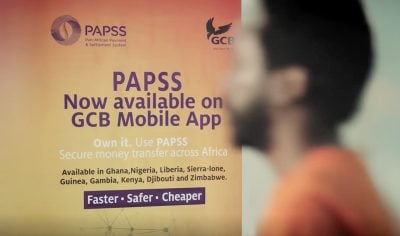Finance Minister Nene in a recent speech confirmed that “over the medium term, government intends to borrow about $1.5bn a year in global markets to maintain benchmarks in major currencies and to meet part of its foreign currency commitments. The balance of these commitments will be met from foreign currency purchases in the domestic market. To diversify funding, government will enter the sukuk market in 2014.”
Sukuk could also be an attractive alternative way of diversifying sources of funding for the country’s major state-owned companies. Indeed, according to the Ministry of Finance, the medium-term capital expenditure by these companies is projected to reach $3.52bn, of which investments by Eskom (the electricity utility), Transnet (the railway utility) and SANRAL account for 90 % of this amount.
Rest of Africa set to follow example
The South African Treasury’s move has been welcomed by several sub-Saharan African nations including Zambia, Kenya and Mauritius, all of which are working towards introducing the necessary legal and regulatory frameworks in their own jurisdictions to facilitate the issuance of sukuk and other Islamic financial products.
Megan McDonald, Global Head of Debt Primary Markets at Standard Bank, commented: “There is evidence of continued growth in demand for Islamic assets by both Islamic and conventional investors, particularly as sukuk instruments have become better understood and with the introduction of credit ratings. We are proud to have played an integral part in assisting the National Treasury of South Africa with this landmark transaction that will help pave the way for future sukuk issuance in Africa.”
Michael Gondwe, Governor of the Bank of Zambia, welcomed the South African initiative. “Sukuk is a very important alternative means for African countries to raise funds to finance infrastructure and projects aimed at poverty reduction and job creation.
“The South African sukuk will be the benchmark issue for the rest of us to follow. I am sure it will pave the way for more African countries to issue sukuk. More importantly it could also lead to state-owned companies, corporates and even social organisations to raise funds from the market through the issuance of sukuk,” he explained to African Banker in an interview.
A senior official from the Central Bank of Kenya, who wished to remain anonymous, similarly welcomed both the South African and Senegal issuances. The Capital Market Authority (CMA) of Kenya, which regulates the securities and equities markets in the country, has recently approved the country’s Capital Market Master Plan, which also includes the development of an Islamic Capital Market, as part of the country’s ambition to promote Nairobi as the premier financial centre in East Africa.
Already two West African countries, members of the Banque Centrale des Etats de l’Afrique de l’Ouest (BCEAO), the Central Bank of West African States, have also issued mandates to a multilateral to advise them in the issuance of their debut sukuk offerings in early 2015. Nigeria, Tunisia, Egypt and Morocco also have the requisite sukuk legislation in place and have in the past indicated their interest in issuing benchmark sukuk.
Sukuk could also be a valuable source of funding for investment by South African companies into the rest of Africa capitalising on high regional growth rates and integration, especially in Southern Africa. Indeed, according to the UNCTAD World Investment Report 2014, South Africa remains the largest investor in Africa in the world.
Africa attracted $57bn of inward foreign direct investment (FDI) in 2013. Of this, South African investments accounted for $23.6bn, higher even than China’s $21.7bn. Some $13bn alone flowed into the Southern Africa Development Community (SADC) countries.
Several other non-Muslim countries have recently issued or are on the verge of issuing debut sovereign sukuk. Hong Kong issued a debut $1bn leasing sukuk almost at the same time as South Africa, and the Duchy of Luxembourg is set to issue its debut sukuk during Q4 2014.
The South African inaugural sukuk has taken a long time coming, but now that it is here, it could be just what the doctor ordered for Africa.
Want to continue reading? Subscribe today.
You've read all your free articles for this month! Subscribe now to enjoy full access to our content.
Digital Monthly
£8.00 / month
Receive full unlimited access to our articles, opinions, podcasts and more.
Digital Yearly
£70.00 / year
Our best value offer - save £26 and gain access to all of our digital content for an entire year!
 Sign in with Google
Sign in with Google 


